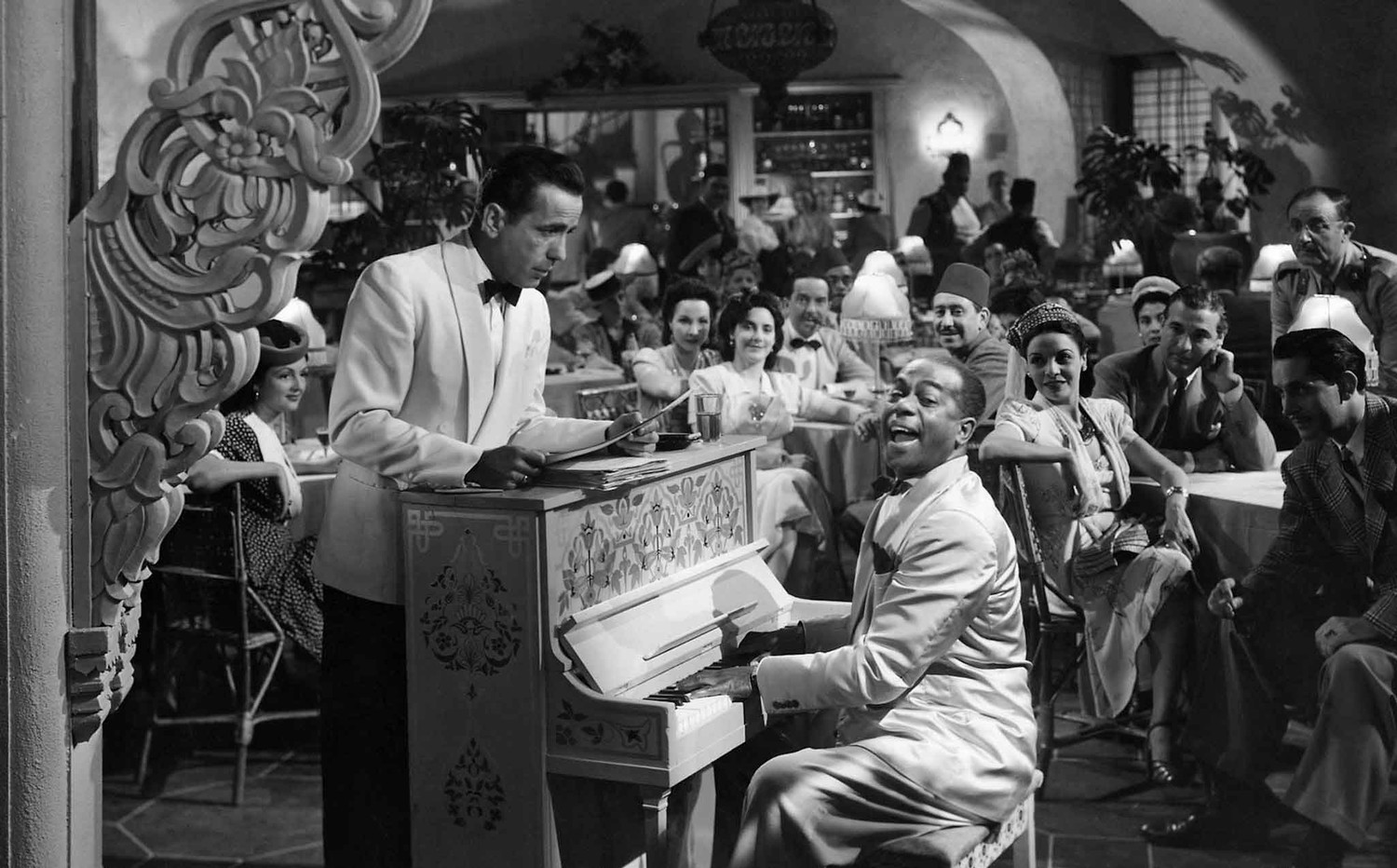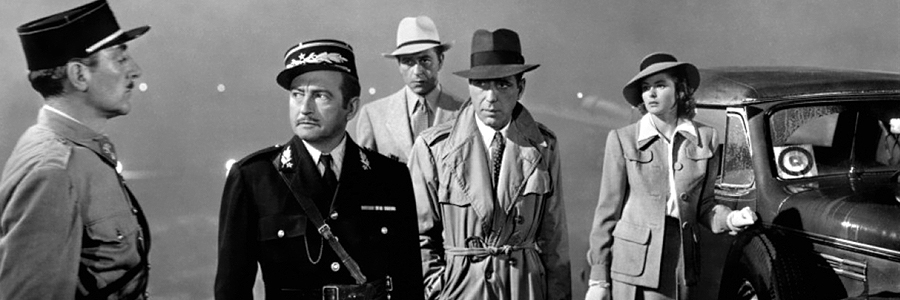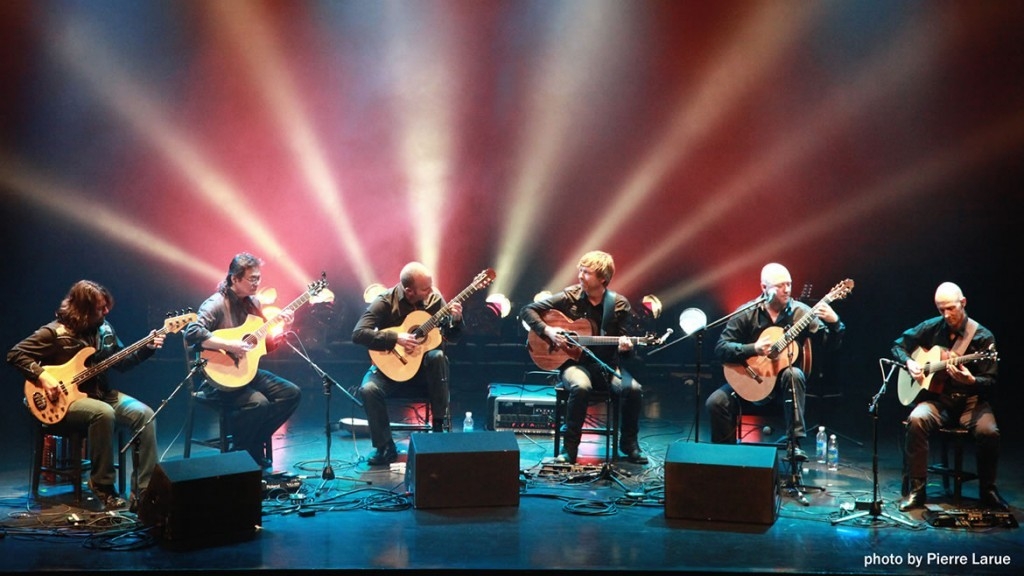
Play It Again, Orchestra! Casablanca, Still a Classic No Matter How Much Time Goes By
You must remember this. Rick's Café Américain filled with desperate people, smoke and the sounds of an old upright piano. Paris, and the wind through the lovers hair as they ride with the top down by the Arc de Triomphe unaware of the looming deadline on their affair. The foggy runway, tears fill her eyes, as he gazes at her in longing while her plane awaits. Ilsa Lund may be trying to find her freedom elsewhere but for 75-years most have welcomed the return to the place everybody wanted to escape from. While based on an unproduced play called Everybody Comes to Rick’s, for over seven decades everybody has come to Casablanca.
75-years later, the film is just as emotional, just as romantic and just as memorable a piece of art ever put down on celluloid. The heart and heartache, the desire, the sacrifice, and the danger have not dated themselves. The film is the epitome of classic cinema discovered anew by each generation “As Time Goes By”.
While Casablanca brings to mind images of Humphrey Bogart stepping out of the mist clad in a fedora and trench coat, the beauty of Ingrid Bergman’s Ilsa as she struggles for freedom torn between the love of two men, and romantic Parisian flashbacks, these scenes and characters are married to just as memorable a film score.
Both will be showcased this week at the National Arts Centre for Casablanca Live!, a unique opportunity to watch the film played out on the silver screen as it’s iconic soundtrack is performed by the NAC Orchestra.

Best known as the creator of Live From Lincoln Centre, show producer John Goberman has a soft spot for the classics. He recalls viewing Sergei Eisenstein’s 1938 film Alexander Nevsky and, while attempting to listen to the music composed by Prokofiev, thinking two things: this was the best film score he’d ever heard but also the worst recorded. The early technology made for a lackluster presentation of the genius found within the music.
“If you see the film you can’t really hear what was recorded,” says Goberman. “It seemed to me that if we could get some orchestration there we could then hear what was in Prokofiev’s head when he saw the fabulous images that Eisenstein made. There’s been some great music written for film and when you can actually hear what the composer had in mind it is a real event. It then turns into a performance of the film.”
“Casablanca is a big musical celebration of a love song,” he says, adding that it’s hard to image the characters of Rick and Ilsa without the music themes that follow them around the picture.
Composer Max Steiner was a child prodigy. He had conducted his first operetta before he turned 13 and was working full time writing music only two years later. Moving to Hollywood in 1929, he would become one of the most prolific composers in all of cinema. He had already written music for 118 films, including Gone With The Wind, before his trip into Casablanca.
Even with that many credits, he nearly made one of the biggest musical omissions to the movies since “Over the Rainbow” was deleted from initial screenings of The Wizard of Oz because it was thought to slow down the picture. Whereas Casablanca and the song “As Time Goes By” now seems like an inseparable coupling, Steiner wanted to write his own piece of music instead of utilizing a song that had been written over a decade before. In both instances, the right choices were made and a farm girl from Kansas dreamed of a place “where trouble melts like lemon drops” and a piano player named Sam sang of how “a kiss is still a kiss” and “a sigh is just a sigh”.

Goberman looks to a time in cinema when film music was really just being invented, something that was more than just there lingering in the background. Films like Singin’ In The Rain, The Wizard of Oz and Casablanca all have scores that are as strong a character in the film as the leads are.
“I think the idea is that the music be part of the action, not just supporting it, but actually part of the film adventure itself at that moment,” he says.
A film like Casablanca is not only a good movie, says Goberman, but it also had an exceptionally well made symphonic musical score. Something that just contained repeated thumping timpani would not have translated well into a full orchestral performance as a film like this one that weaves returning themes that help bring more severity to the danger or give mood to the romance. When the music swells as Rick and Ilsa embrace you too swell caught up in the moment the soundtrack is creating as it becomes an extension of the character’s love for one another.
“When (Ilsa) is making such a big deal about the song with Sam and he does too, what they are talking about there is the music but also the feelings it generated for them,” says Goberman of one of the film’s most iconic scenes despite an often misquoted line of dialog.
Steiner would base his score on the French national anthem and "La Marseillaise" plays most memorably in one of cinema’s most rousing moments as Rick’s café of oppressed refugees fleeing German occupied Europe drown out the Nazi anthem with a flourish of powerful patriotism.
The late Roger Ebert didn’t just refer to Casablanca as a movie. It was The Movie. It is one that “has transcended the ordinary categories. It has outlived the Bogart cult, survived the revival circuit, shrugged off those who would deface it with colorization, leaped across time to win audiences who were born decades after it was made.”
“Sooner or later,” he said, “everyone sees "Casablanca."
So gather up your usual suspects! Whether you're visiting for the first time or returning to Rick's once again, the coming NAC screening will be one you won’t soon forget. How could you, really? After the lights dim, the film will continue to remind you of how "you must remember this".
“Here’s looking at you, kid.”








